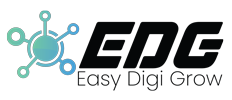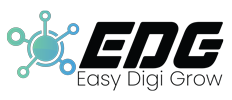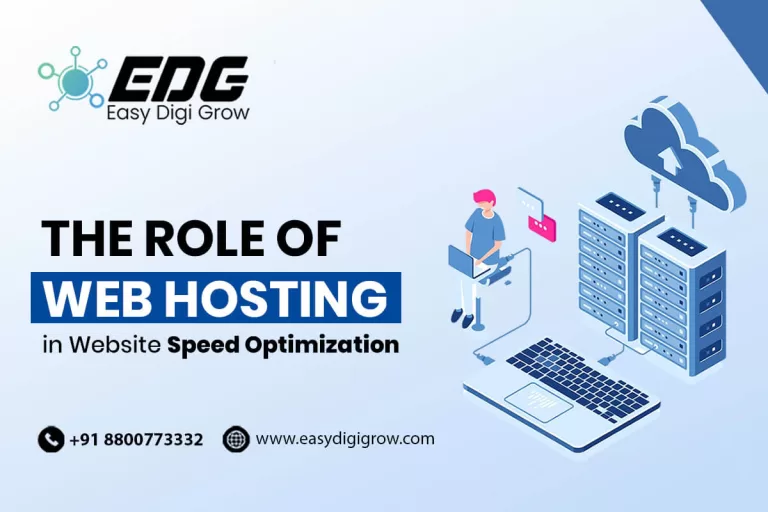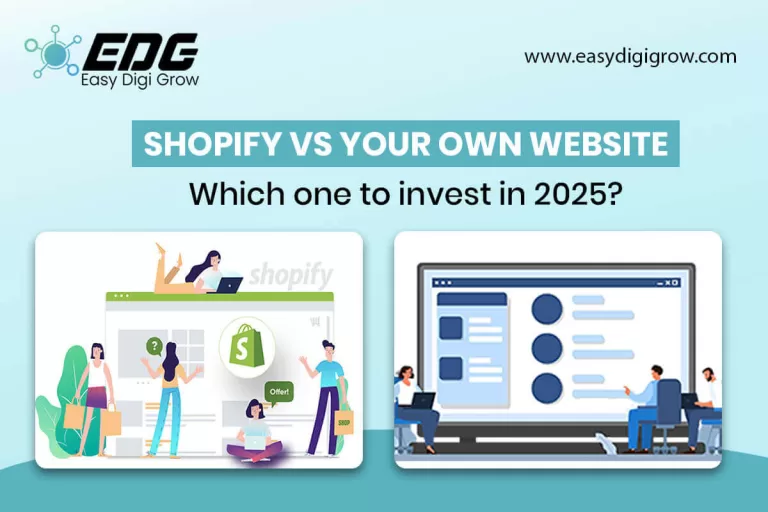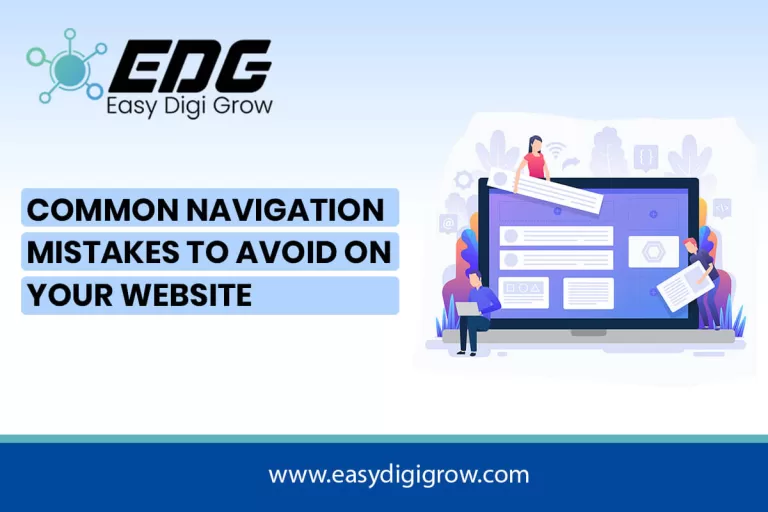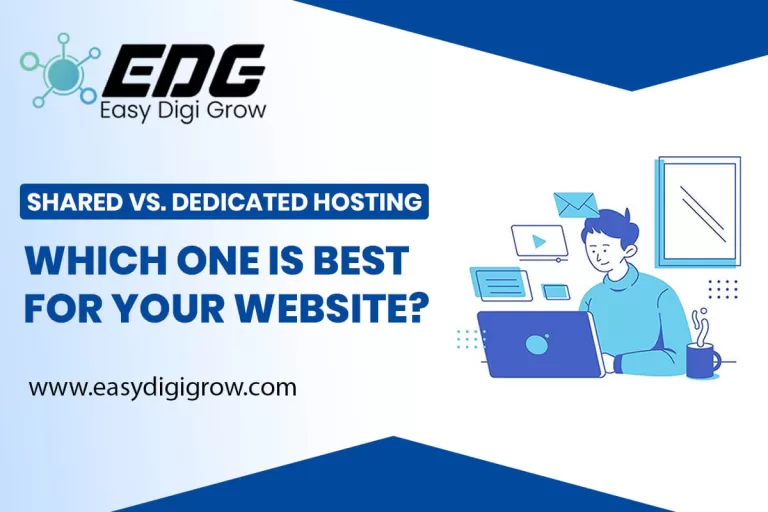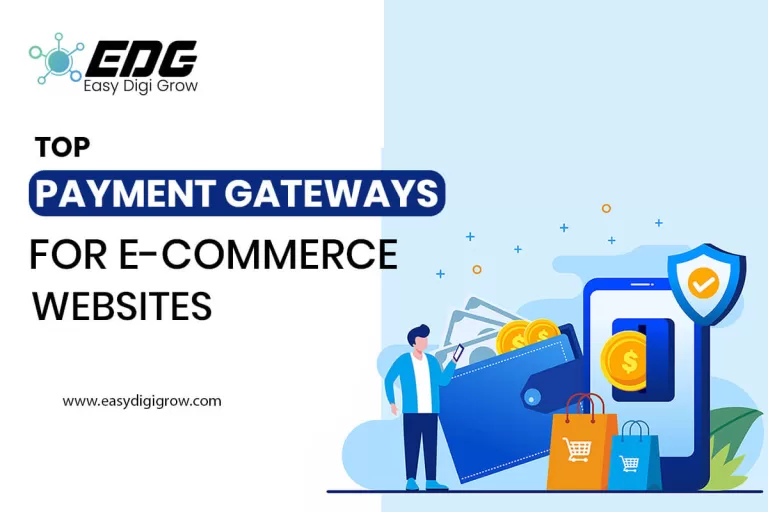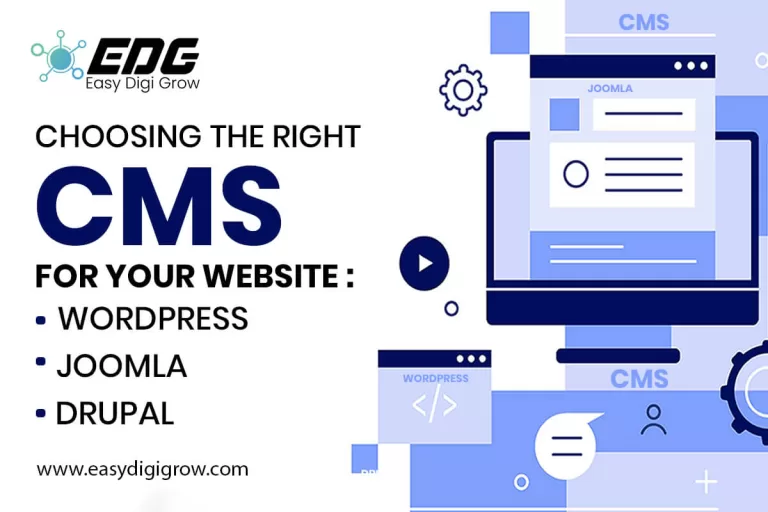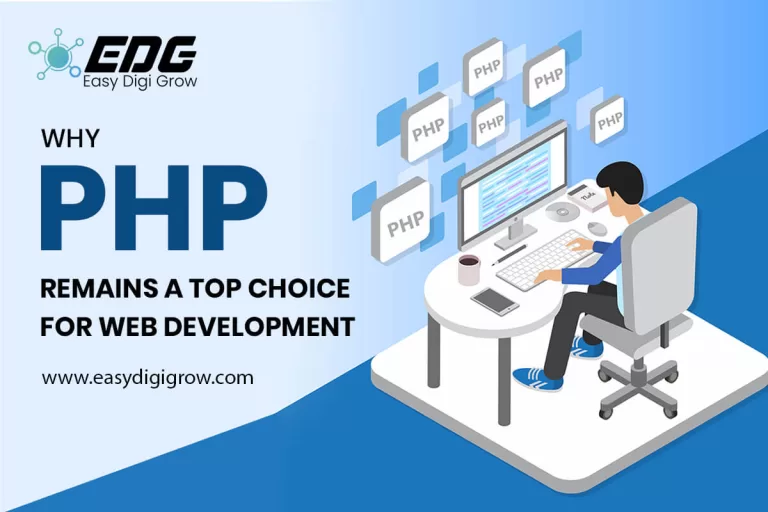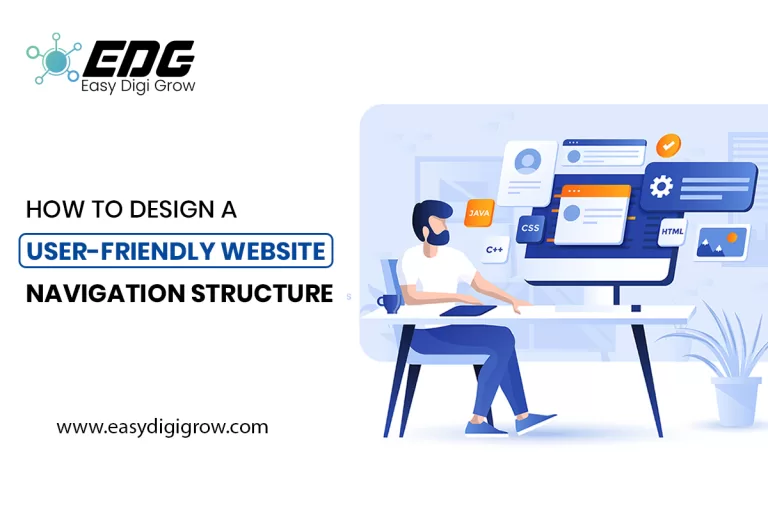In the digital world of today, having a substantial presence online and PPC services near me is hugely instrumental in acquiring new clients. Organic Search Engine Optimization (SEO) will have an important role, but pay-per-click advertising can be a powerful way to make sure you are visible for local searches quickly.
If you want to boost your online visibility and visitors to your website, you should understand PPC (pay-per-click) marketing. PPC is an effective technique to contact potential customers via showing advertisements on SERPs and other platforms and paying only when somebody clicks on them. But where can you get a foolproof guide for growing and developing your PPC services?
Here it is! EasyDigiGrow offers you a clear and straightforward roadmap through the world of PPC. Whether you’re a new person or trying to improve your skills, this guide will help you understand the fundamentals, create successful campaigns, and optimize for improved results. From choosing the right keywords and writing appealing ad copy to setting a budget and measuring results, you get information on how to run effective PPC campaigns that acquire actual results. This guide will help you know everything that is needed, give you confidence, and growing your business can be done by using PPC marketing the right way. Following this guide will give you the knowledge and confidence you need to expand your business by using PPC marketing correctly.
In this article, we will explore in detail how you can win with local PPC and grow your business.
What is local PPC SEM?
PPC (Pay-Per-Click) SEM: PPC means advertising on search engines such as Google and Bing. These ads display in the top positions on the search engine results pages (SERPs) across specific keywords, based solely on what users type into Google.
By contrast, local PPC takes it a step further and targets customers within specific geographic regions. This is done by placing your ads in front of users who are searching from a particular location so that you can contact those people looking for what you do, but only within your local area.
Here are some of the words you may be exposed to:
- Pay-per-click: You only pay when someone clicks on your ad.
- Search Engine Marketing: This is the blanket term that includes PPC as well as SEO.
- SERP (Search Engine Results Page): The page that a search engine shows to visitors, which includes the results of their query as well as some ads.
- Localized PPC: Geographically centered PPC marketing
Where Do Local PPC Ads Appear?
People looking for local businesses online on a phone, tablet, or computer see those ads for dentists and other businesses right at the top of the search results page (SERP). It depends on the search tool, but these top spots are usually above the normal search results. Like other online advertising, however, local search ads will be labeled as “ads” or “sponsored,” though sometimes the wording may vary.
You may even see these local dentist ads show up in the Google search results map special section, also known as the “Map Pack,” and on the Google Maps app too, specifically.
Why Use Local PPC Services?
Organic SEO is the core to online success for the long term, and this result could take time. There are a few key benefits to local PPC that make it attractive, if not more so than the ideal in other areas of pay-per-click management.
- Quick Results: Unlike search engine optimization, PPC gives you a faster result. With little search engine ranking strength required, your ads can show up on SERPs in only a few minutes after the launch of the campaign for those wanting an immediate boost, driving instant traffic.
- Reach: Local PPC can help you reach customers who are looking for the products and services your business offers where they live. The specificity of this ensures only the perfect prospects see your ads, leading to superior conversion rates.
- Higher Visibility: By ranking at the top of search engine results, your local ads in PPC stand out and spread brand awareness within your target area.
- Measurable results: Every click and conversion is tracked, so you will have access to metrics first hand with many helpful analytics that the PPC platform will offer. Using a data-driven approach can ensure you are getting the most out of your campaign and maximizing ROI.
- Competitive Advantage: Local PPC will aid in competing with the national firm. It helps one fight for a local search even when not yet dominating online as other big firms do.
Statistics and Trends in Local PPC
More than 70% of users use the search engine to discover local businesses and services. This simply displays the massive opportunity that local PPC provides to any business trying to reach a large number of customers with an interest in branded products.
These statistics for a local PPC market show how effective the service is.
- Mobile Dominates: Mobile Dominates: It should be seen as super critical that over 50% of all searches are done on mobile devices, making your local PPC ads viewable for these mobile platforms.
- Location: Between 75% and 88% of all the local mobile searches resulted in a phone call or visit to your store within just twenty-four hours. Local PPC can really help lots of these in-person conversions happen.
- High ROI Potential: Businesses can get back $2 dollars for every dollar spent on PPC, as per recent studies.
The numbers speak for themselves and display local PPC in their brightest light.
A Comprehensive Guide for Crafting Your Local PPC Campaign
With the generics covered, we can go to work on setting up a successful local PPC campaign.
- Define your goals: Let’s get started with some clear goals for your local PPC campaign. Are you looking to drive more website traffic, get leads or phone calls generated by your site, or increase in-store visits? Objectives will help you develop and execute your campaign strategy, as well as figure out if it was successful.
- Set Your Budget: PPC is based on a pay-per-click model, where you will have to spend some money for each click someone makes on your ad. Set aside a budget based on what type of industry you want to do business in, where your target market is, and the results that you wish for.
- Know your audience: Who are you trying to reach? You need to know what your ideal customer looks like, where they live, and their behavior online so that you can craft ad copy and target the right keywords.
- Keyword Research: The lifeblood of your local PPC campaign is keywords. Do your homework and come up with a list of local keywords that are searched more often (high search volume) but have less competition in the area you want to target. You can use Google Keyword Planner to find relevant keyword opportunities.
- Craft compelling ad copy: When you have very little space in your ads, every single word has to count. Your ad copy must be direct, to the point, and compelling.
Here Is A Checklist On How To Write Successful Local-Level PPC Ads:
- What Sets You Apart from the Crowd?: Focus on Your Unique Selling Proposition. Show the type of value that potential customers will look for with your headline.
- Target Local Relevance: The advertisement should target the users on the part of town by incorporating a location within it.
- End with a CTA: What do you want the users to do from here? It could be visiting the website, calling a contact within the business, or making a purchase.
- A/B test: You should never make the first ad created be your last try. This means that you can use different headlines and descriptions to see the king that brings the best.
- Dominate Local Searches: Partner with EasyDigiGrow for the best PPC services near me and watch your business thrive.
Leverage Location Extensions:
Location extensions are available across local PPC platforms, which means it’s always possible to show your business address and phone number in addition to a really tiny CTA button right below the headline of most types of ads (the one that says “Visit us Today” or something like that). Fully commented, with nice, easy-to-find comments, enabling users to search by clicking on their physical location on the map.
Optimize Your Landing Page:
A landing page is where the users will go once they click on your ad. Ensure that it fits your ad copy and provides a user-friendly experience. Make sure the landing page converts well for whatever action you would like the users to do: buying, completing a form, or calling you.
Track and Analyses:
PPC platforms allow you to look deep inside performance data related to your traffic, clicks, and Cost-Per-Click. It provides all the stats about your campaign if you want from an ad network. You can see by running a report on a specific date range or between demographic targeting, which reach will be more successful, etc., so there is nothing hidden that these systems won’t let me know, like visit counters’ for one could do wonders… By regularly evaluating this data, you can see what is working with your campaign and what isn’t. Leverage this intelligence to refine your bidding strategy, keyword choices, and ad copy for improved performance.
Stay Up-to-Date:
Online marketing is a fast-moving industry. News trends and platform updates Be sure to keep on top of your PPC game as much as possible with the latest news and updates for all platforms so your local efforts do not suffer.
Consider Professional Help:
Although you can do your own local PPC campaign, it is time-consuming and requires specialized skills. If you are new to creating PPC campaigns, then we advise that you partner with a suitable pay-per-click agency or specialist who can use their experience and skills in the field of pay-per-click advertising on Google AdWords to deliver optimum results for your business.
5 Ways to Make Your Local Search Ads Succeed
However, if you want to up your local PPC game and optimize for long-term wins, these tips can help get you on your way.
1. Create Two Ads and Bid Prices
In simpler terms, bids are the price you decide to pay every time someone clicks on your ad. Now, just because an ad is getting a lot of clicks does not mean that it’s doing great; you need to see how many, if any, are converting into leads or customers.
Conversely, you should never run only a single ad at the same time, because then it will be very hard to compare. We suggest starting with at least two ads running concurrently so you can compare the performance of those to see what is working better. That is it. You just want to spend less on low-performing ads and bid more for better-performing ads.
2. Test Out Different Keyword Match Types
We know the process for discovering and mapping your keywords, but you also need to consider the type of keyword match. Always select a match type that will bring in a related search. These will be the query types you allow Google to show your ad on, which we get into next.
Broad Match
Broad match makes sure that your ad gets shown in any search with the word-related keyword, no matter what other text is in or around the query. This will get your ad the most exposure, but a high number of customers might not be what you want on your landing page, depending on how much it costs.
If you are trying to sell “men’s shoes,” everyone out there who is looking for a shoe shine kit isn’t the item that will make money and shouldn’t click on your ad.
Phrase match
Phrase match will instruct Google to only display your ad on the search results page if a user searches for the exact key terms (through close variations) you have entered along with words before and after them. This is a very good and balanced match type that allows you to decrease the scope of your ads so they focus on more specific deliveries, meaning there will be significantly fewer irrelevant clicks.
As in, if your keyword is “party stools”, there are searches like “cheap party stools” or even ‘buy bar stools”.
Exact match
Exact match is the most specific matching type, and it will only display your ad for searches that exactly fit with what you have entered as keywords without anything before or after. Although this does limit the number of people your ads will reach, it puts you in a better position because users who do click on your ad are more likely to actually want what you have.
To illustrate, if your keyword is “desk lamps,” only those people who type in this very specific query will even see your ad.
This single approach will not be the best for you because it depends on what marketing goals are and how much money to spend, so try all of them and find out which other work.
3. Add Negative Keywords
Using negative keywords allows you to control much better who Google will show your ads to. Broad and phrase match types can help your ad show for some users who include other words in a query, but that also means you could be shown out in irrelevant searches. If, for example, you are selling men’s suits and they’re fairly high-end, then it wouldn’t make sense to attract traffic searching for ‘cheap men’s’ suits.
Negative keywords will allow you to keep certain search terms out of your campaign and target the type that can bring in the right clicks.
Start by brainstorming the simple search queries you would work to avoid if possible. As time goes on and the ad collects more data, you may discover additional negative keywords that should be included with that campaign, as well as an idea of what actual search phrases people are using, which can help limit your exposure.
4. Add New Keywords
You see, keywords are how the ad system knows where to show your ads. A keyword may be a great performer for you one month, but that doesn’t mean it will keep the same level of performance in the future.
Online Advertisers: You need to be ahead of your game, and the only way you can manage that is by knowing exactly what keywords, search phrases, or combinations are working best for your target audience. Get in the habit of checking your keywords regularly and tracking their performance; this way, you will quickly learn which ones to leave behind and which ones are a no-go zone.
The intent is to help you spot trends so that you can adjust your bids as needed. Use the Keyword Planner tool to find new ideas. You can build ads around, i.e., create ad groups of keywords based on your findings in this section, and have a set of long-tail (3–5 word) keywords, which are best used for lead generation campaigns because they search for exactly what belongs to your business.
5. Test Ad Copy
In addition to implementing the correct keywords, negative keywords, and match types when creating a compelling paid search campaign, ad copy will be the final test of whether someone clicks on your advertisement (or not). You don’t need to be a PPC ad writer. Oftentimes simplicity is most effective.
Try different power words and phrases that define exactly what you are selling. If you cannot think of anything else to add, then have a look at competitors’ ads and see what they are doing.
Case Study: Local PPC Success Story
So, let us say you have a small bakery in the city. You will need to appeal to customers in your neighborhood. For example, your local PPC campaign would aim for keywords such as “best croissant near me” or custom cakes.” Here are the ads (promoting your fresh-baked treats and awesome cake designs) that tell them to “,” as well.
In this way, using location extensions along with a delicious-looking image of one or some best-selling pastries also makes your customer journey smooth. This way, you continually keep track of your campaigns and minimize them to potentially get a better reach and more tread for your bakery. This is just a single instance of how local PPC can work to your benefit when done correctly.
Grow Your Business Today: Contact EasyDigiGrow for top-notch local PPC services tailored to your needs.
Conclusion
Local PPC provides the ability for businesses to meet new customers, which should give them a competitive advantage within their locale. Local PPC has a lot of potential to help you achieve your business objectives and deliver immediate results for many industries if done correctly by its core principles, steps outlined above (or something similar), and optimization mindset. The key to success for defining your target audience is specifically writing ads that speak to it, and evolving them constantly based on performance data and learnings.
PPC services develop your business by offering you directed ads. We have designed a foolproof guide for you to impart the mastery of pay-per-click marketing. It is an important skill to learn whether you are just beginning the work world or working to improve your level of knowledge. Gain the knowledge to build effective campaigns that increase visibility and bring you quantifiable success.
This is your chance to take your business to the next level and hone your marketing campaigns to perfection with our expert help. It will improve the knowledge and confidence to effectively run pay-per-click (PPC) ads that deliver real results.
Get started with EasyDigiGrow on the wondrous journey to PPC success that will make your business flourish. Jumpstart this odyssey that could make a big difference in your online visibility and get an amazing head start.
Boost Your Local Reach: Try EasyDigiGrow’s expert PPC Services Near Me and see immediate results.
FAQs
1. What Is PPC And How Can My Local Business Benefit?
PPC stands for Pay-Per-Click. Pay-Per-Click– an online advertising model in which you only pay when someone clicks on your ad. Local PPC is for the people in your area searching about what you offer This means getting too high-intent clients, fueling web page traffic whatever it all is being equal extending your business.
2. How Does Local PPC Help You Target The Right Audience?
- Long-tail Keywords: You focus on the service you provide and your location. For example, think of a plumber in Delhi or a hairstylist near me. The people searching these terms are most likely looking for a business close to their location like your own.
- Geo-targeting gives you the ability to control where your ads are seen by users in terms of their geographical location. You can define this area by:
- Radius: Create a geofence by drawing a circle around your business and inputting the radius of proximity you wish (for example: within 5 miles from my store).
- Location: Target entire cities, states, or even countries.
- Zip Codes: You can get down to the details by focusing on only those areas where your ideal customers live.
If you use geo-targeting, your ads will only be seen by people who are close enough to visit! This increases the relevance of your ads and keeps you from wasting your budget on people clicking through who are outside of whatever area you service.
3. How Much Does Local PPC Cost?
Unfortunately, there isn’t a one-size-fits-all answer. You decide on a budget for your campaigns and you will only pay if someone clicks on it. Competitors, location, and keywords all play a role in the cost per click (CPC).
4. Do You Do Your Own PPC Campaign Management On A Local Level?
Yes, you can! But that takes time in research, it requires ongoing management and we only need to tell you where your data is! Professional PPC Services – Expertise in one place. More and more businesses are now going for professional PPC services to take benefit of the expertise and optimize campaigns for better performance on their own instead of spending time learning and working out overhead savings.
5. What Success Metrics Should Be Used for Local PPC Campaigns?
Local PPC is incredibly measurable so you can track exactly how successful it is. Consider clicks, site visits, and most importantly conversions (phone calls, contact form, completions/bookings). Using these metrics, you can pinpoint what keywords and ad copy are doing well most often, that way you can make adjustments to your campaign in order to get the biggest return for money (ROI).
